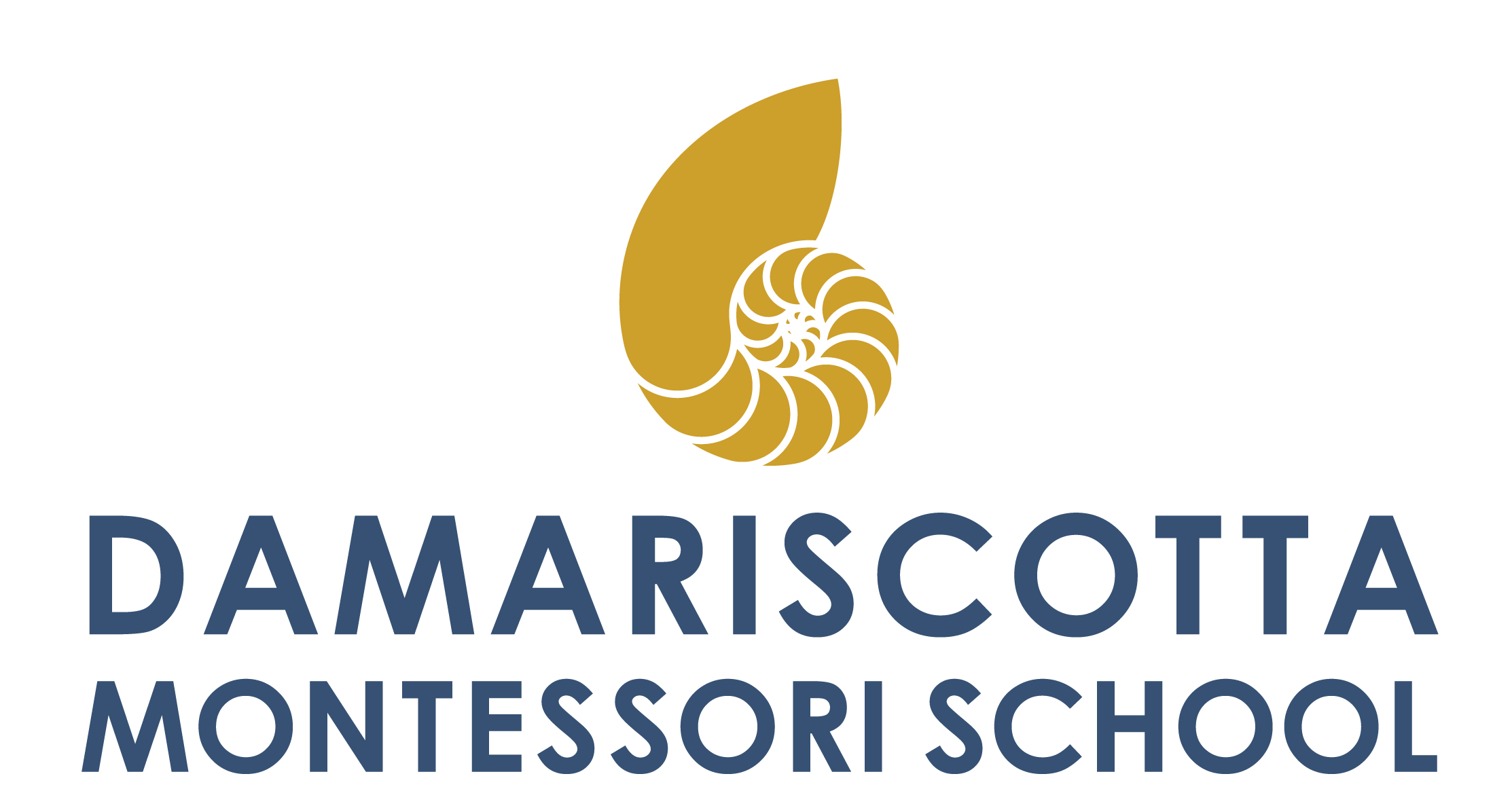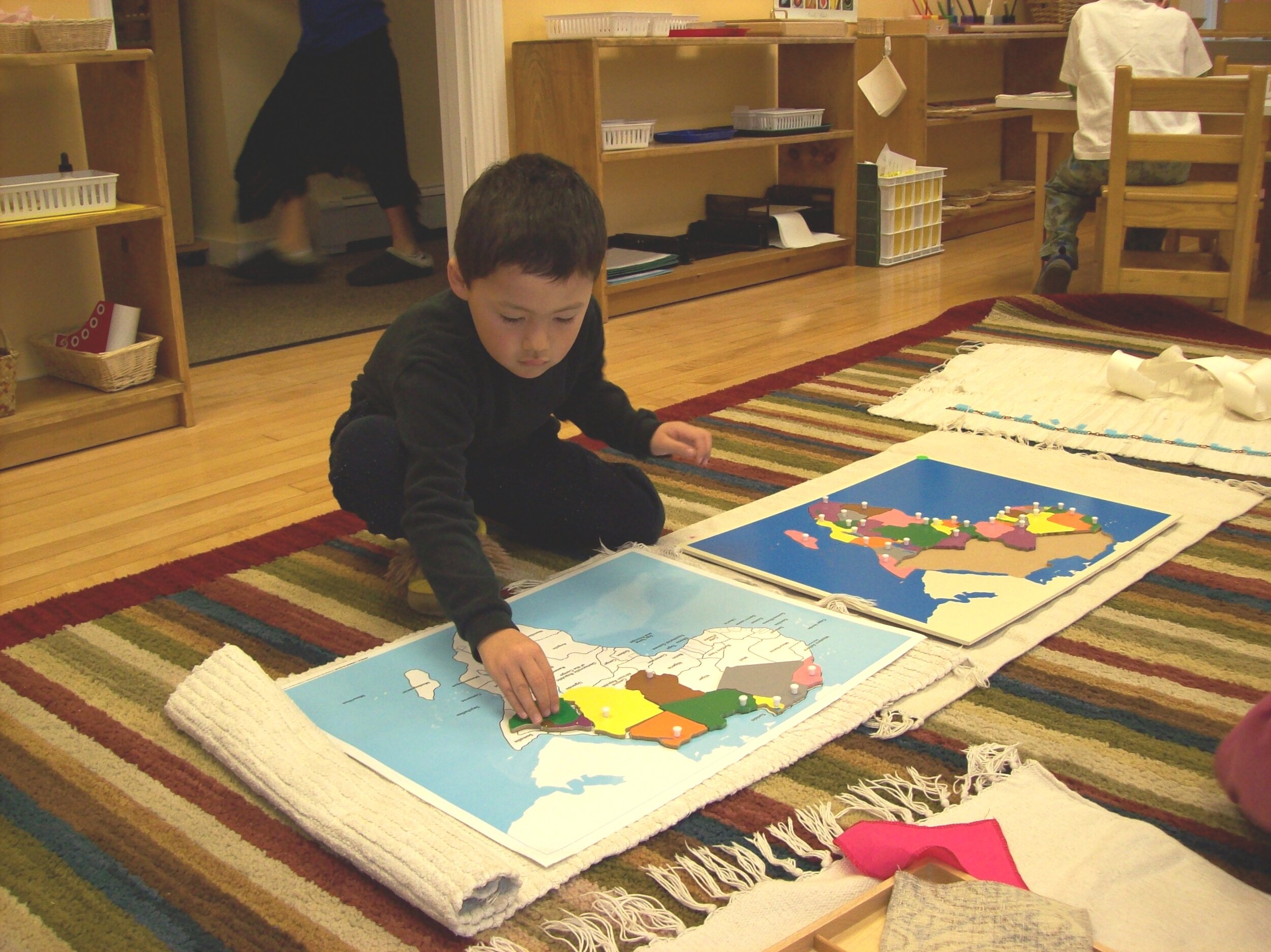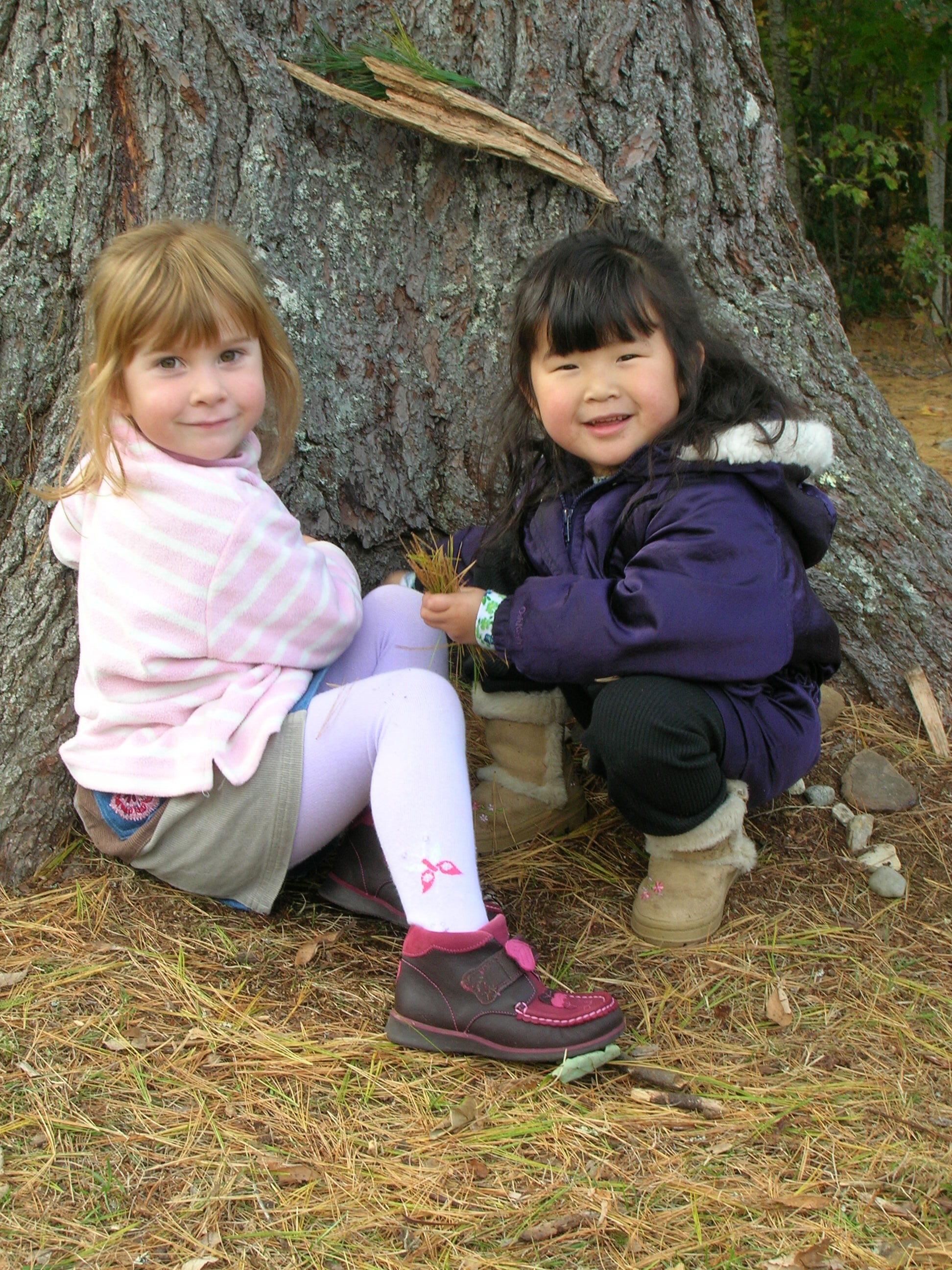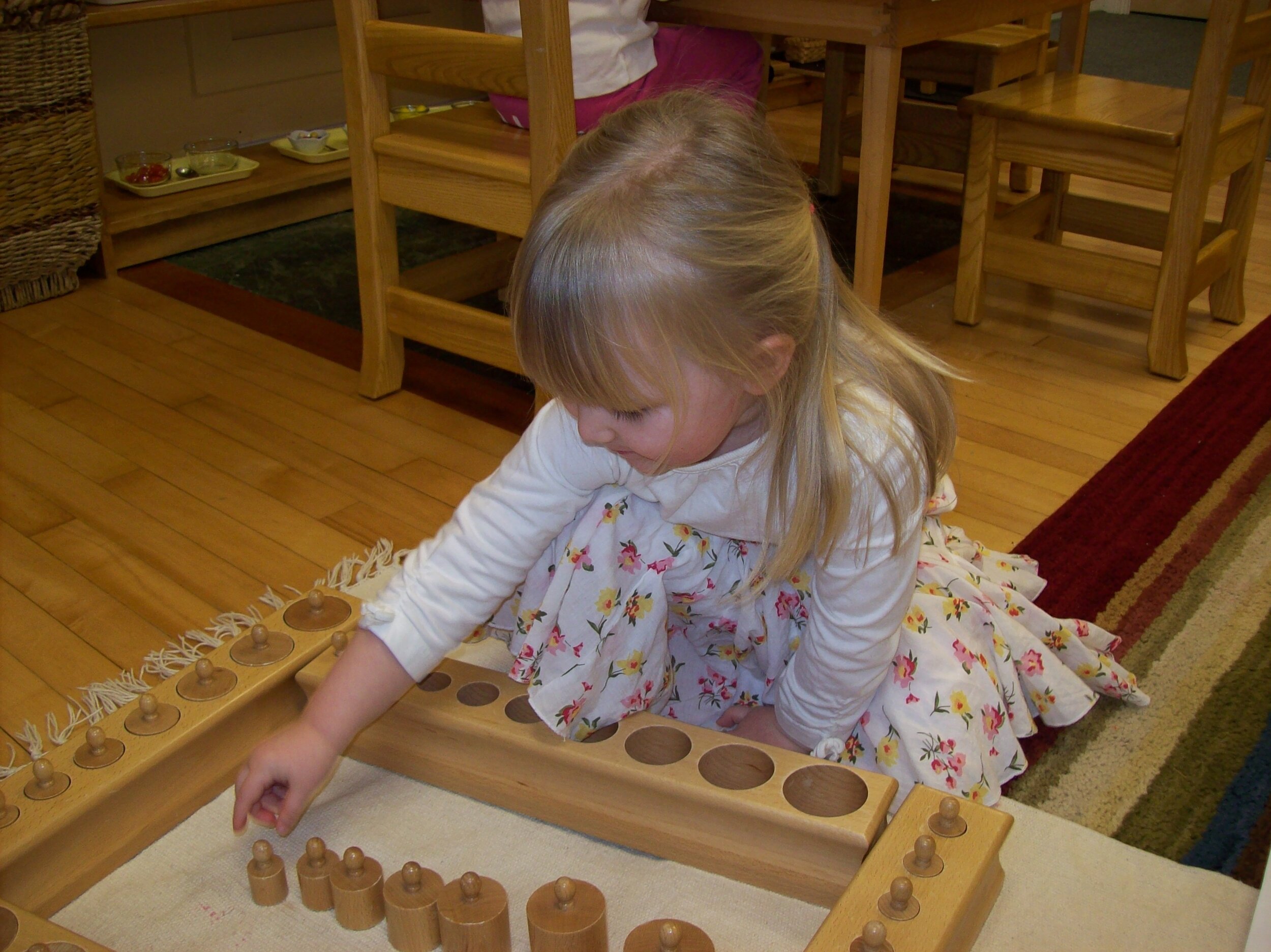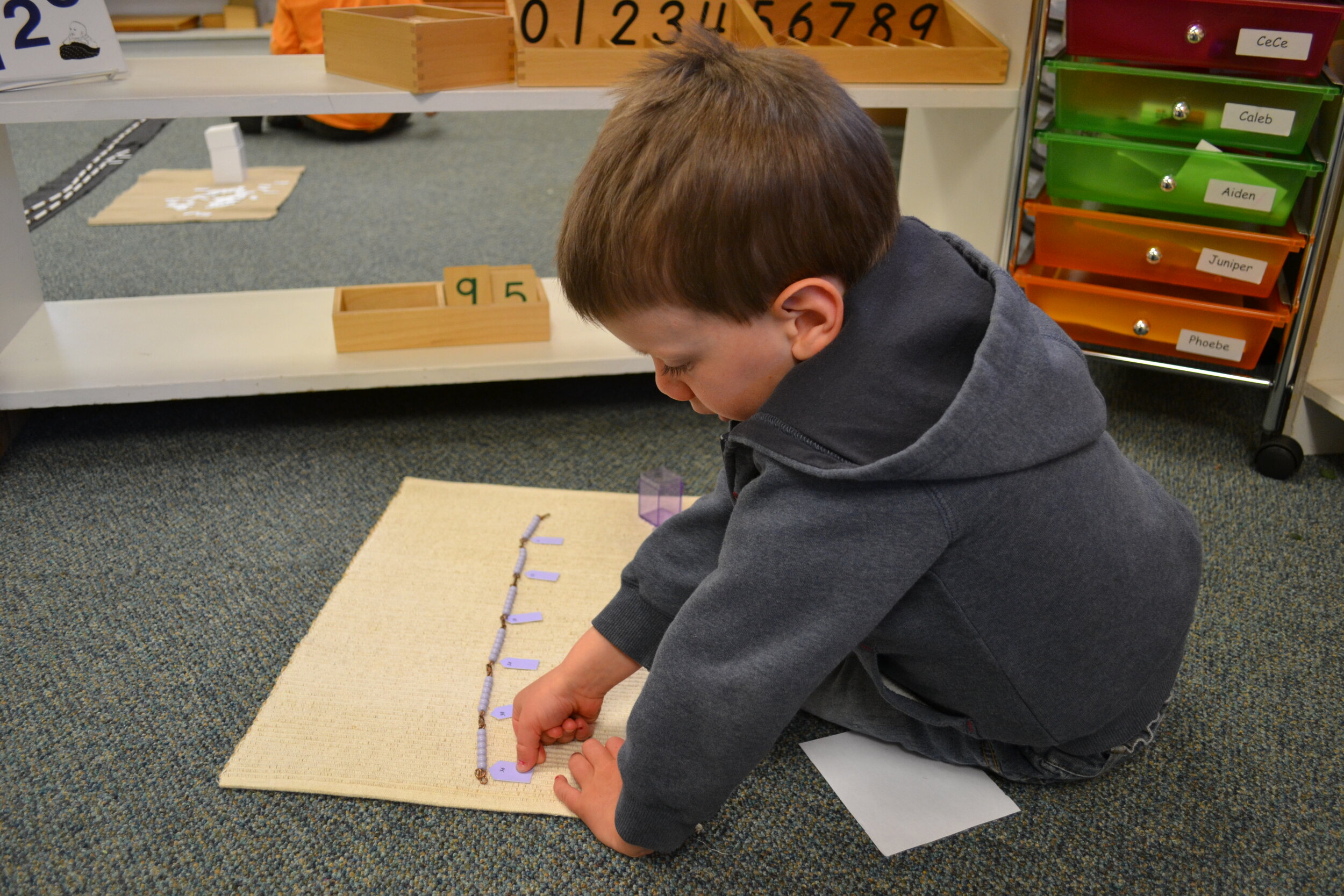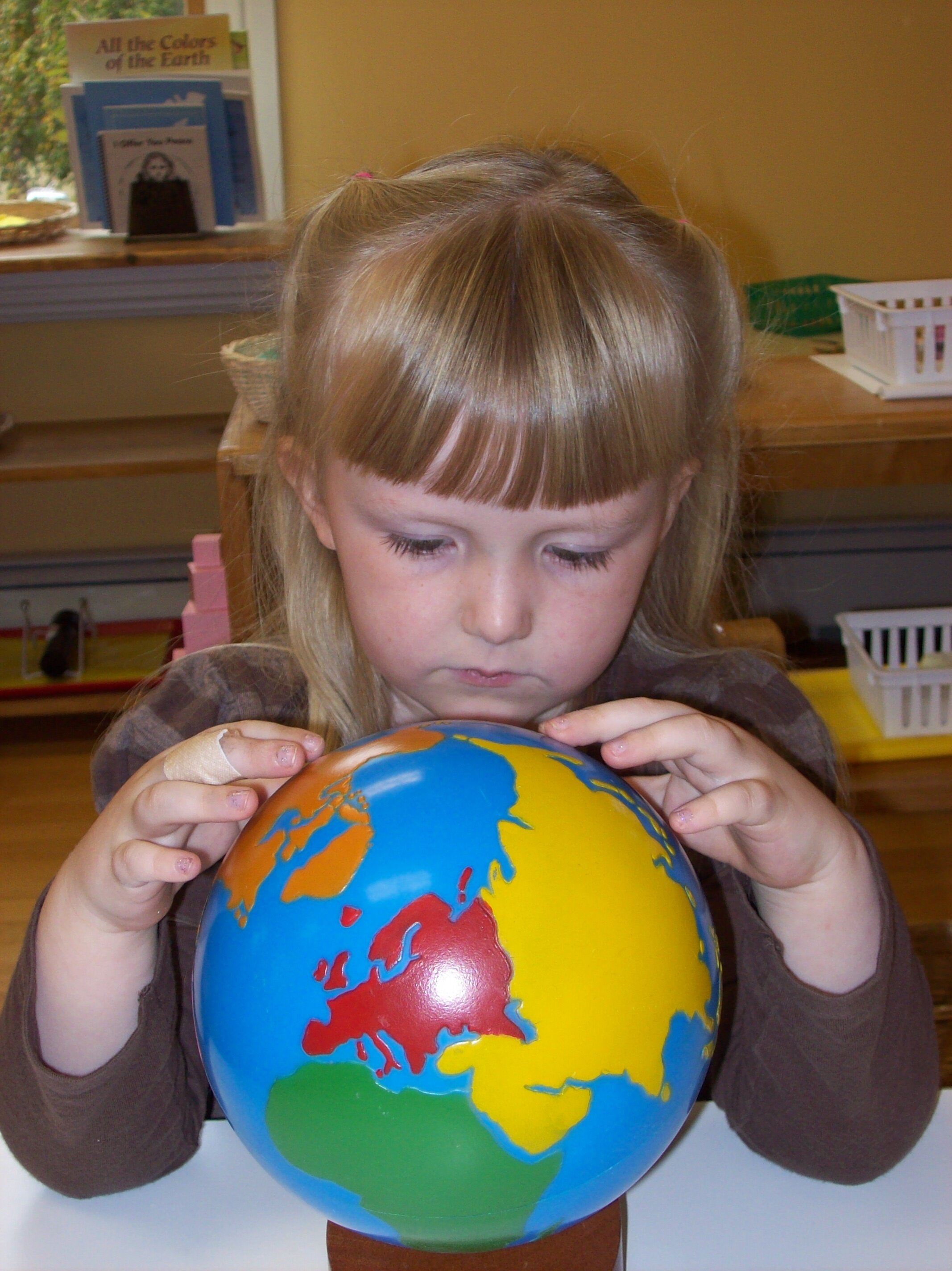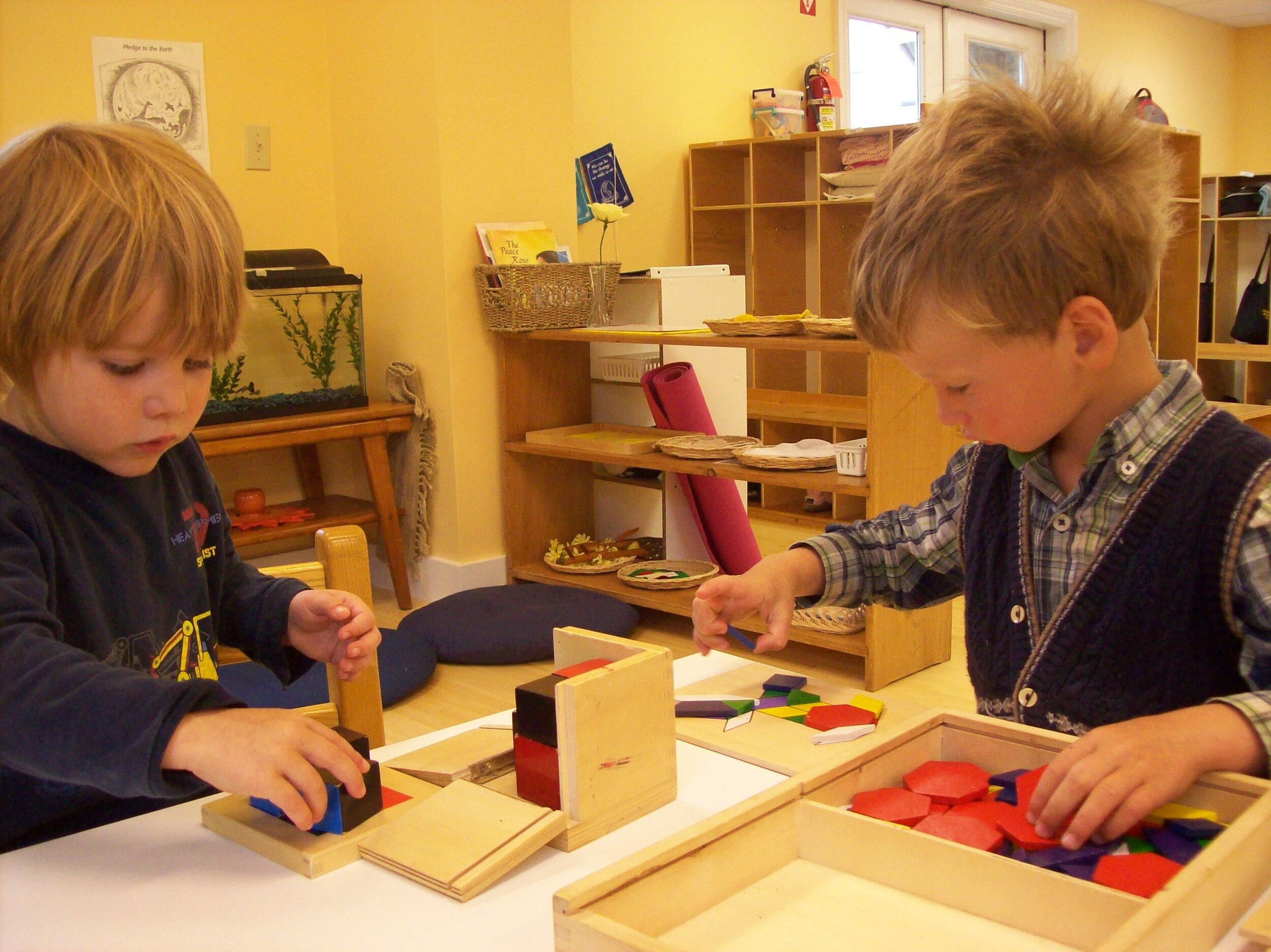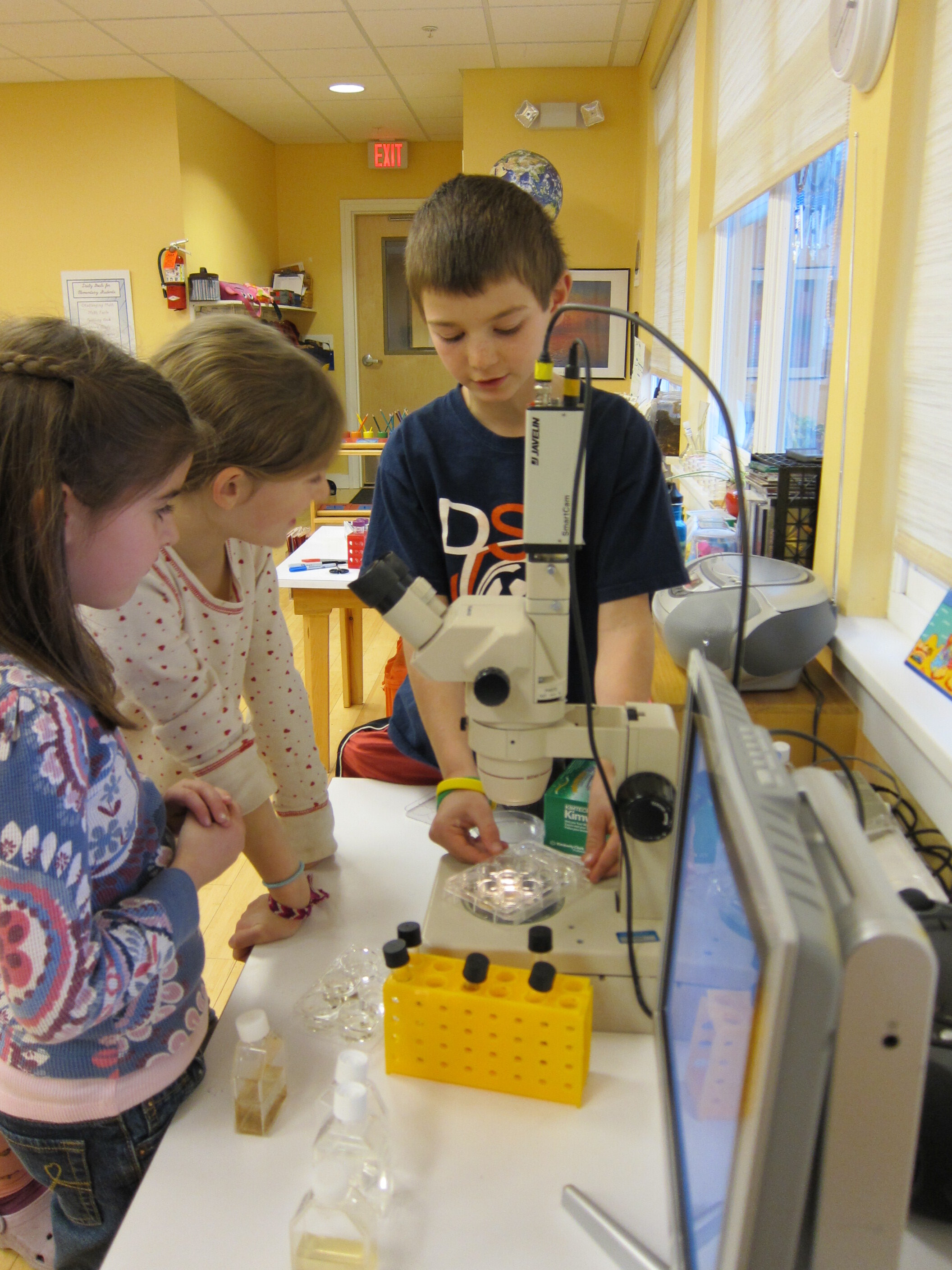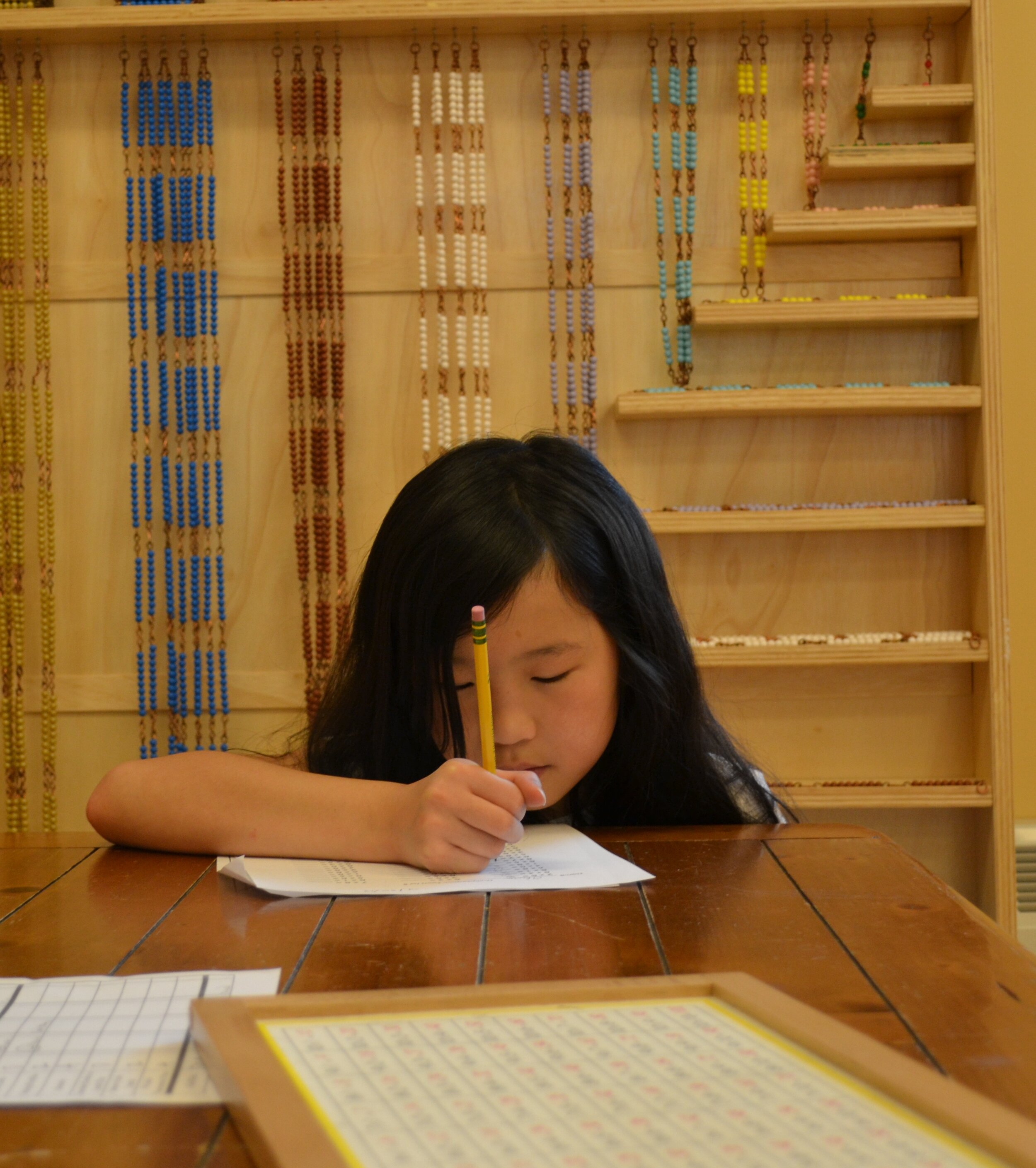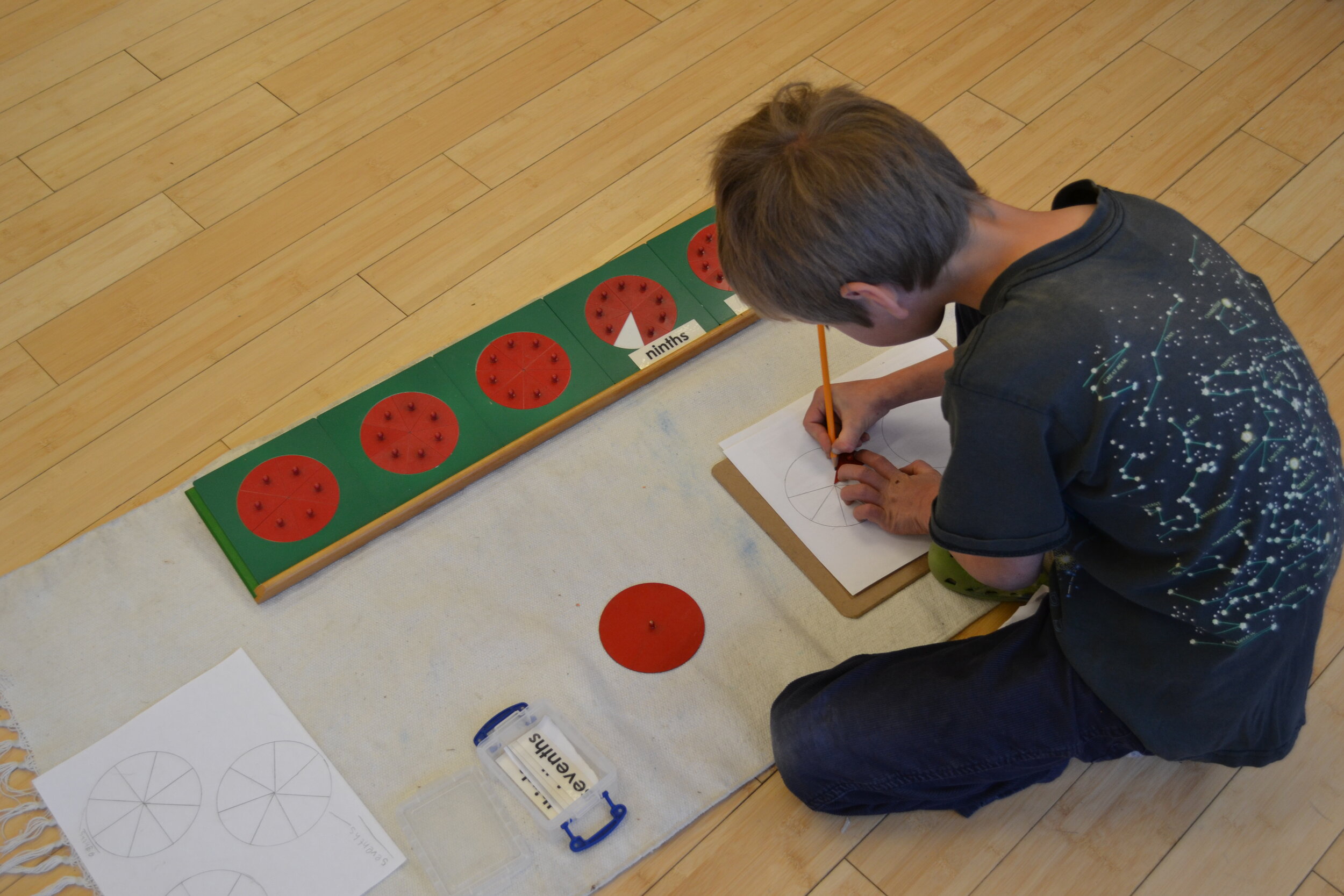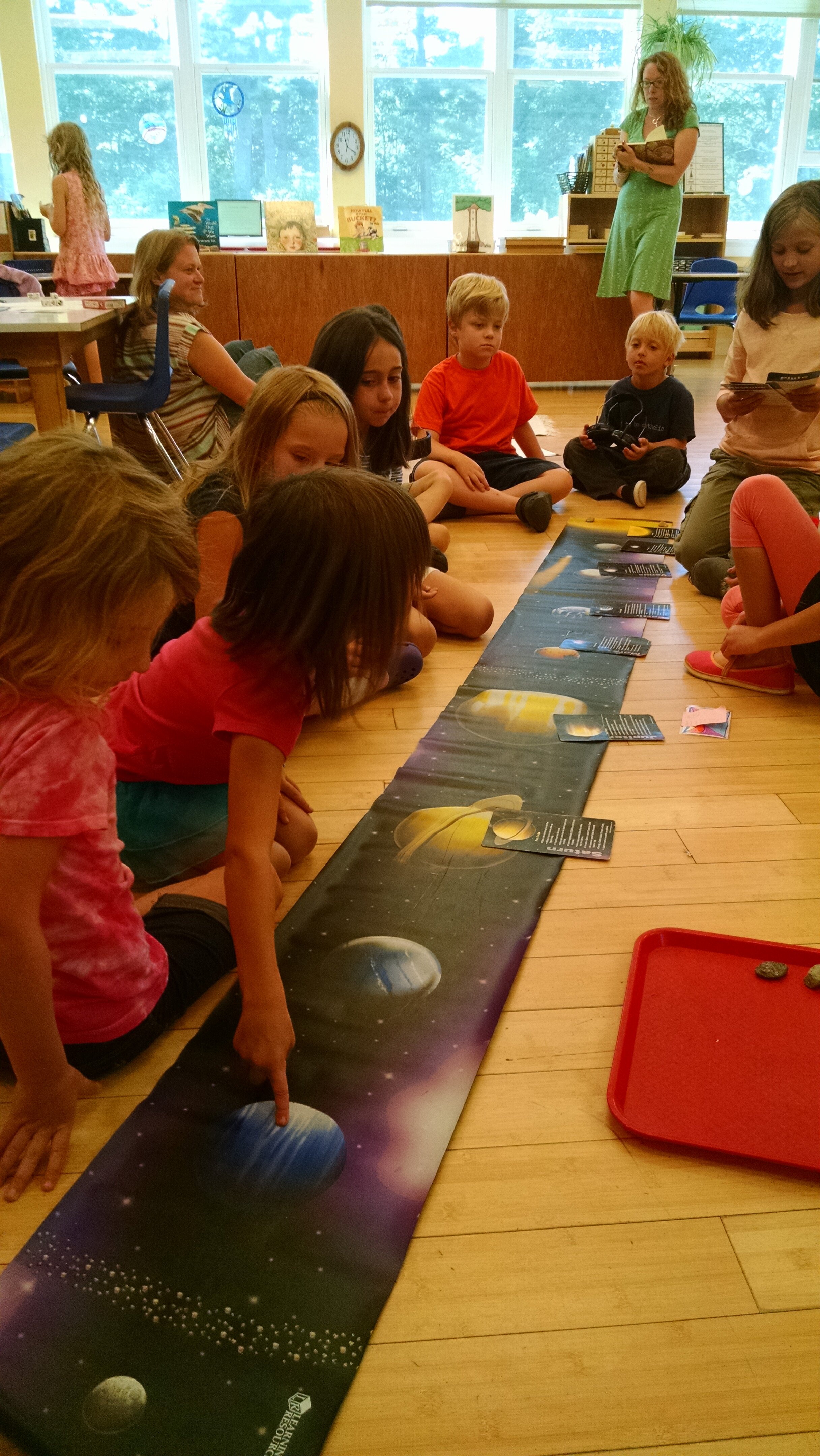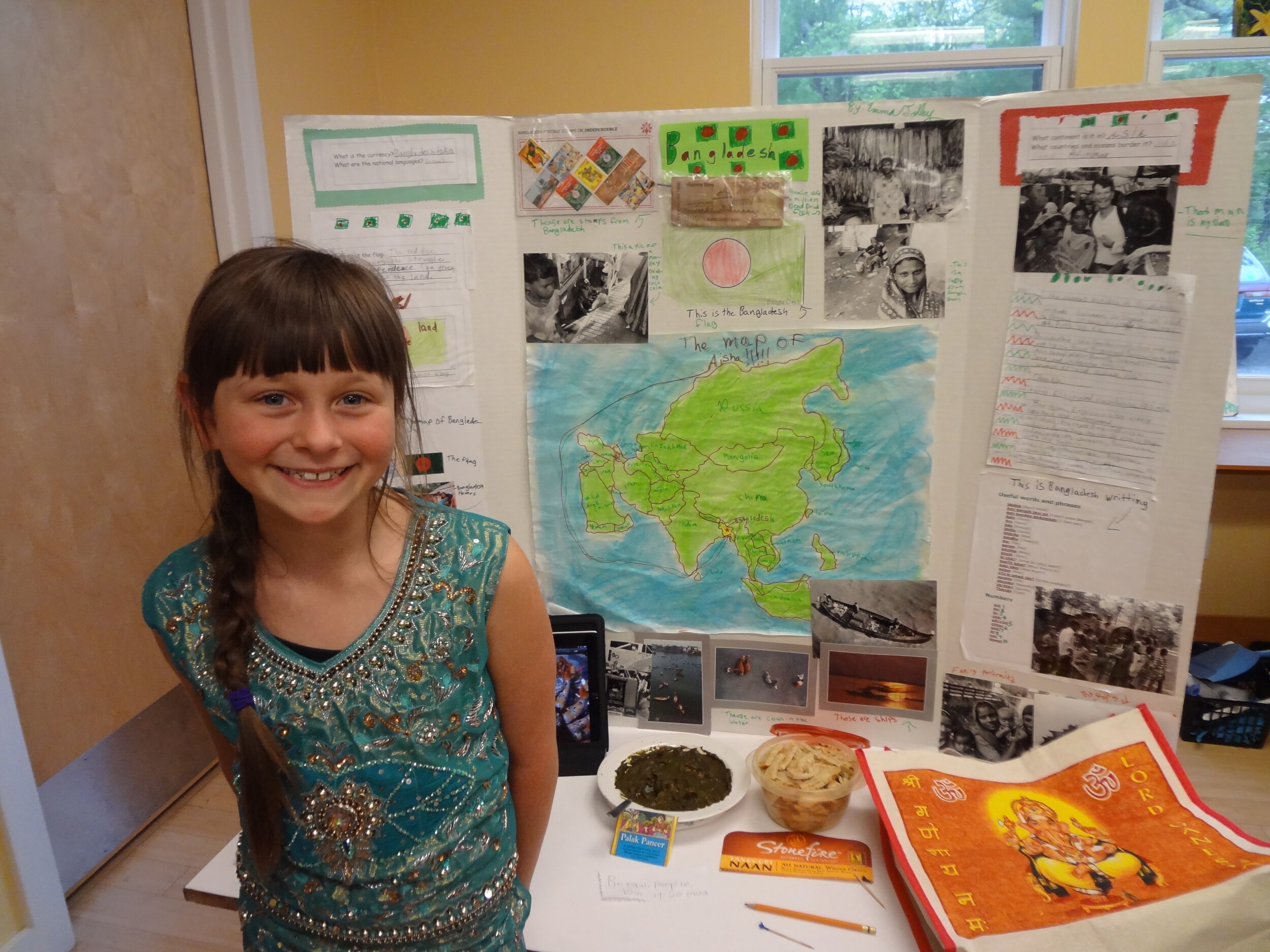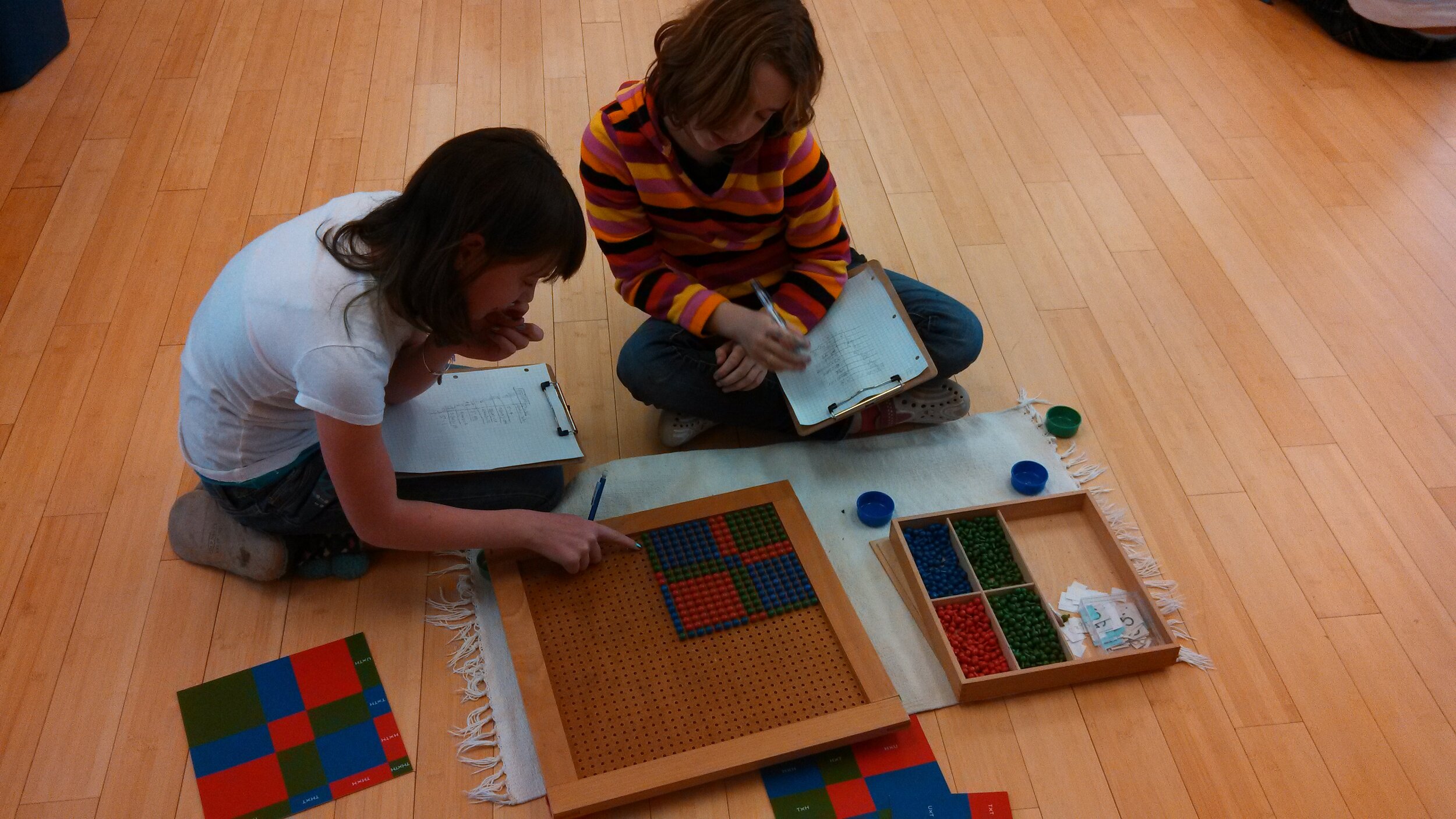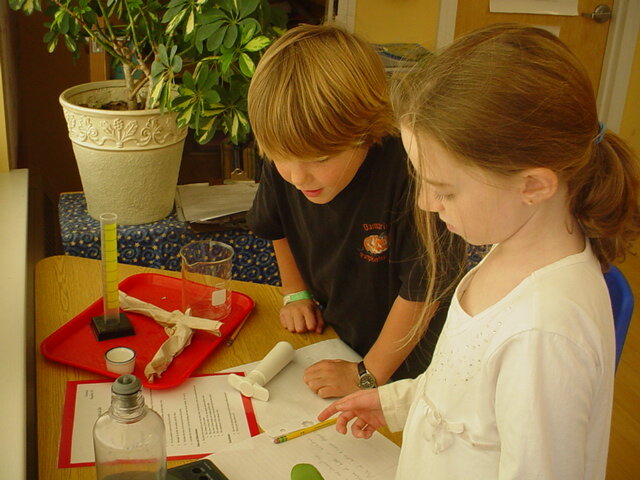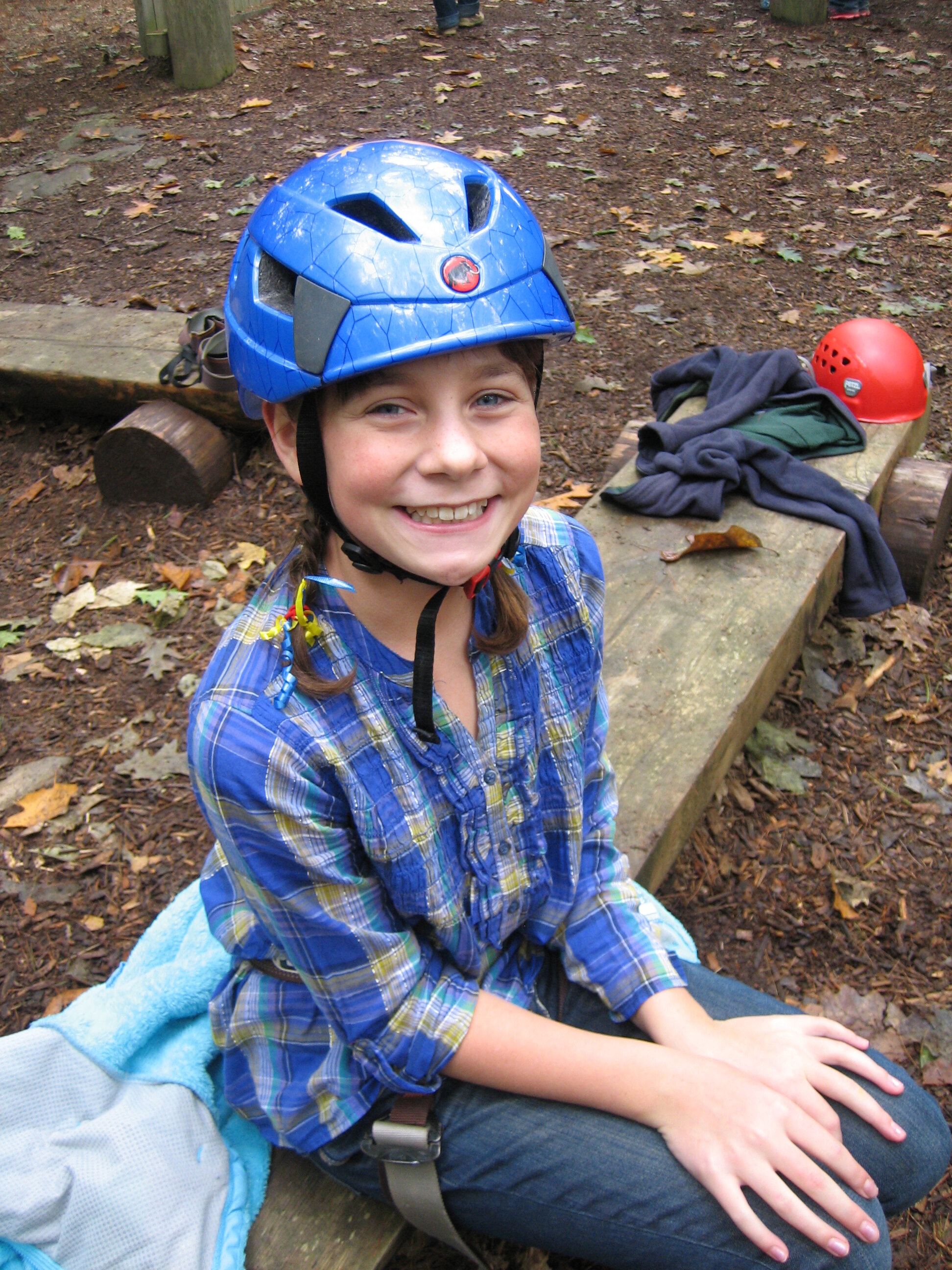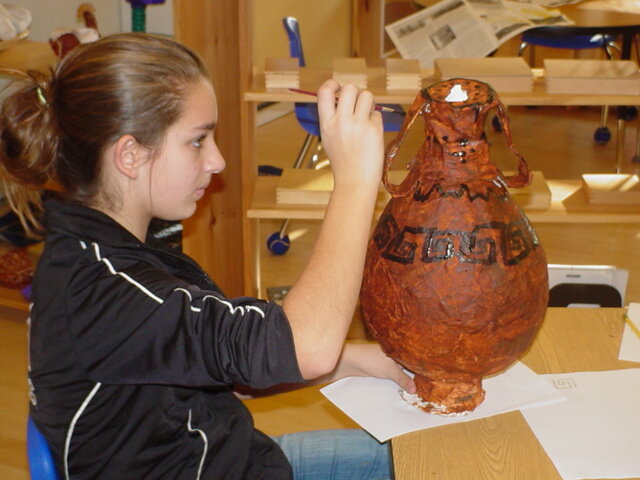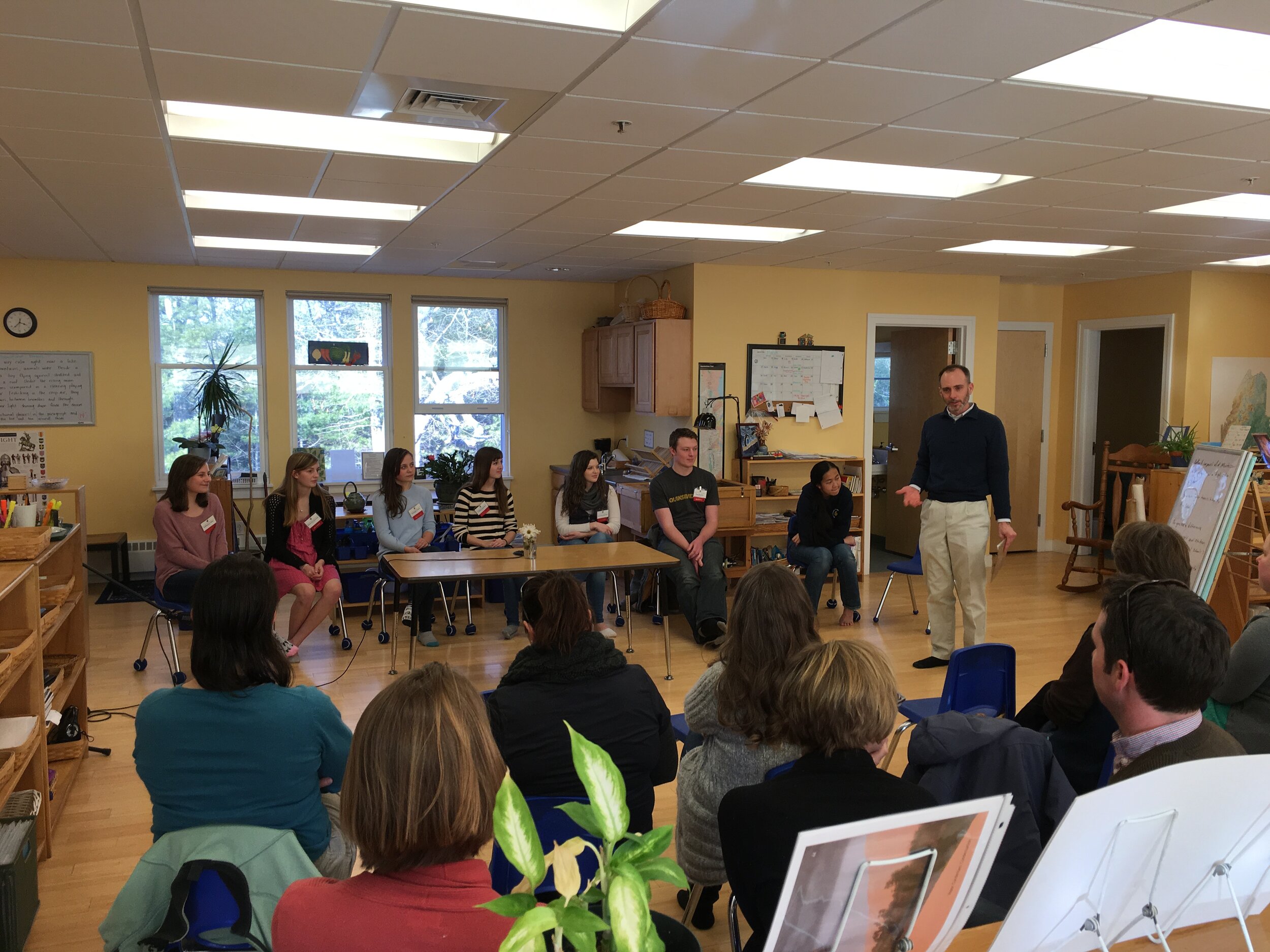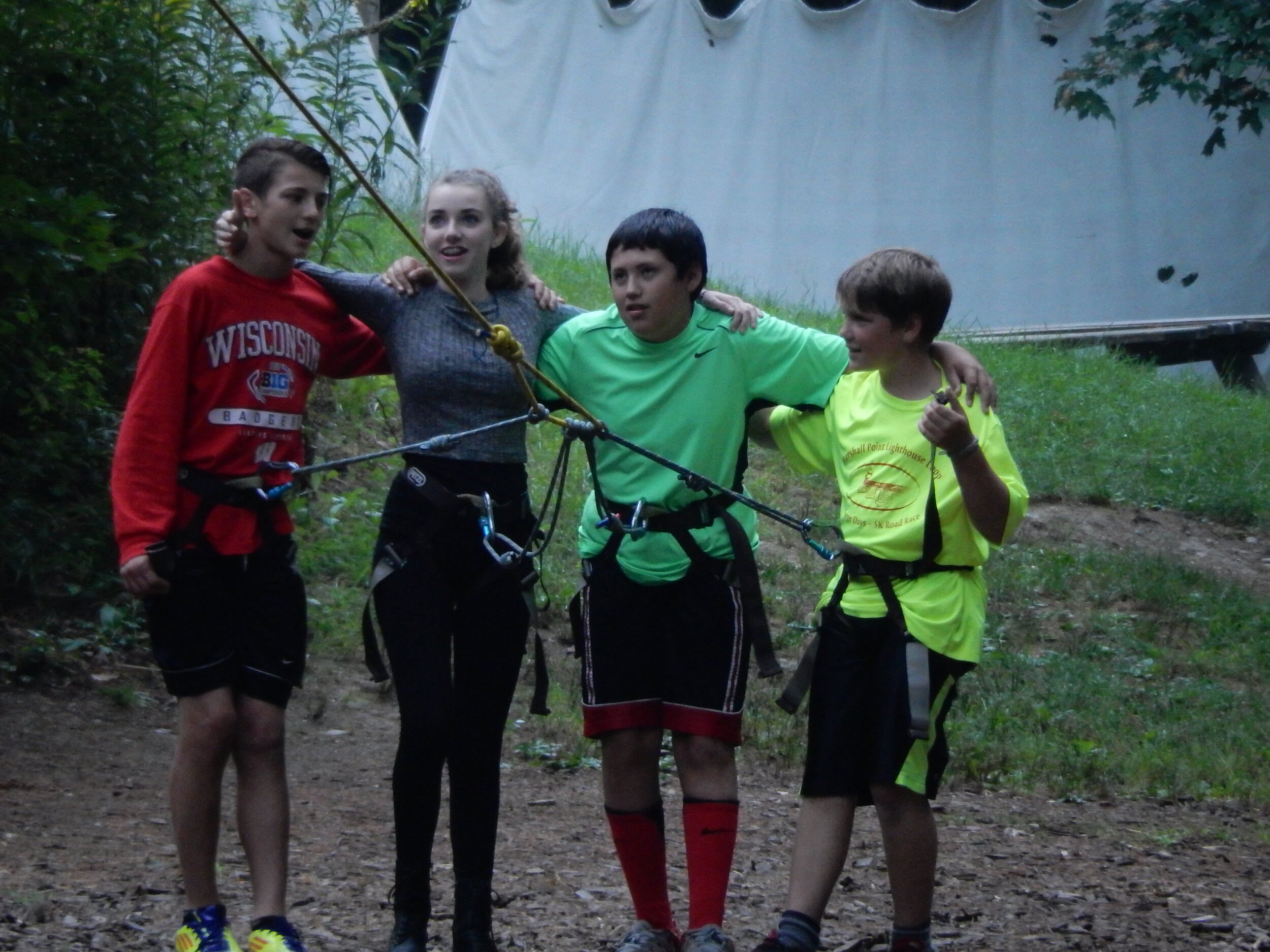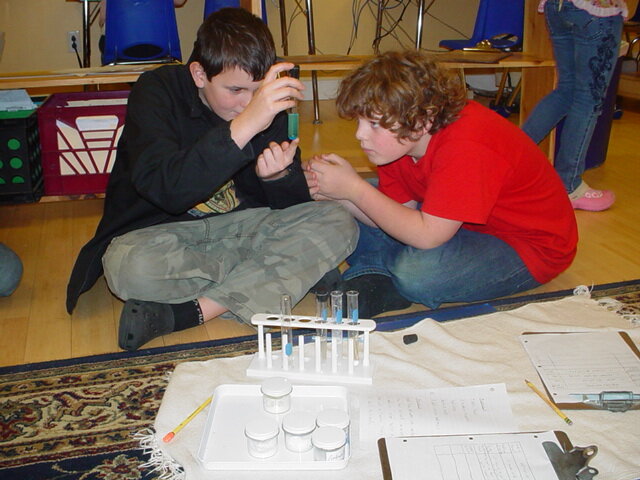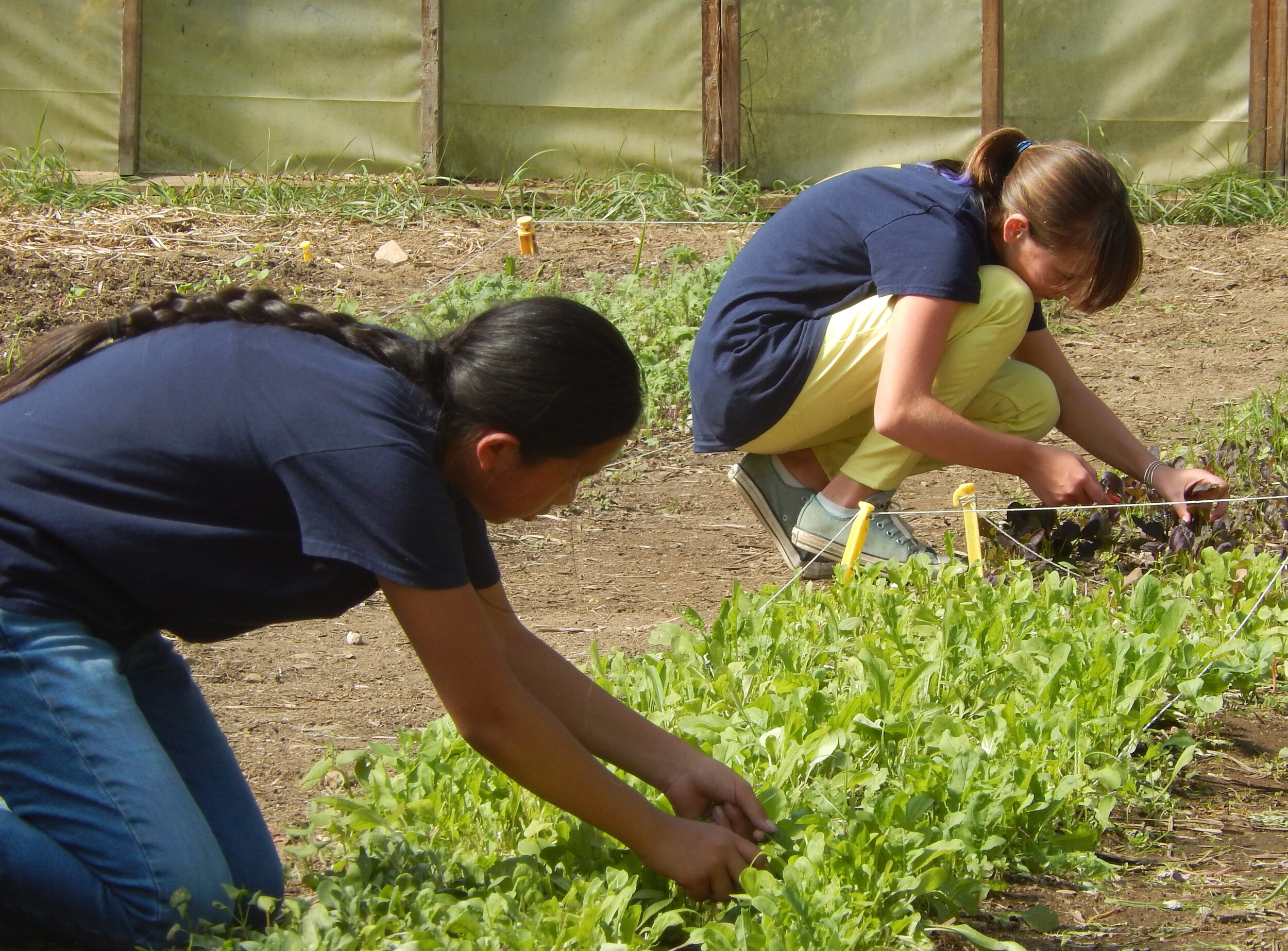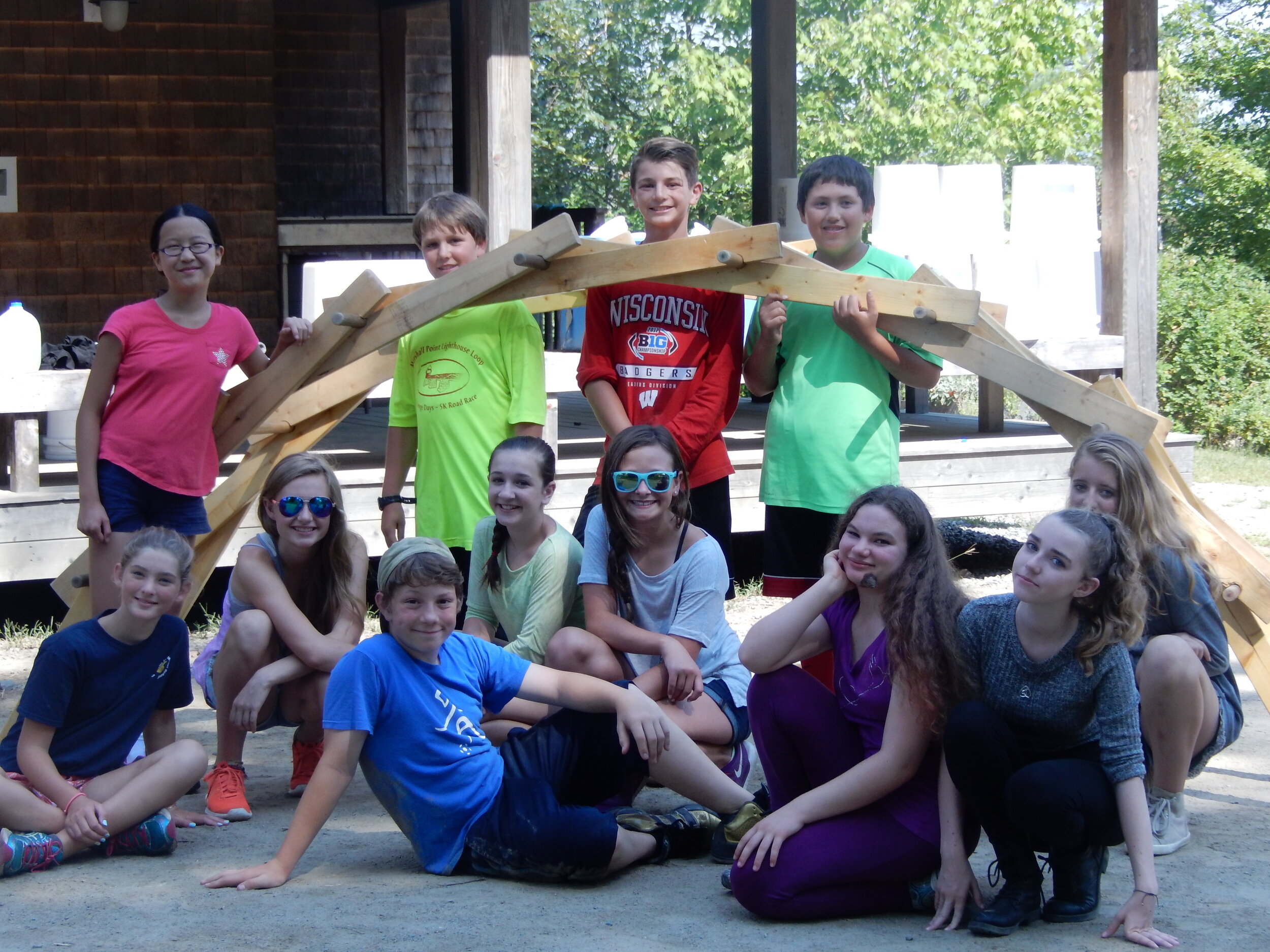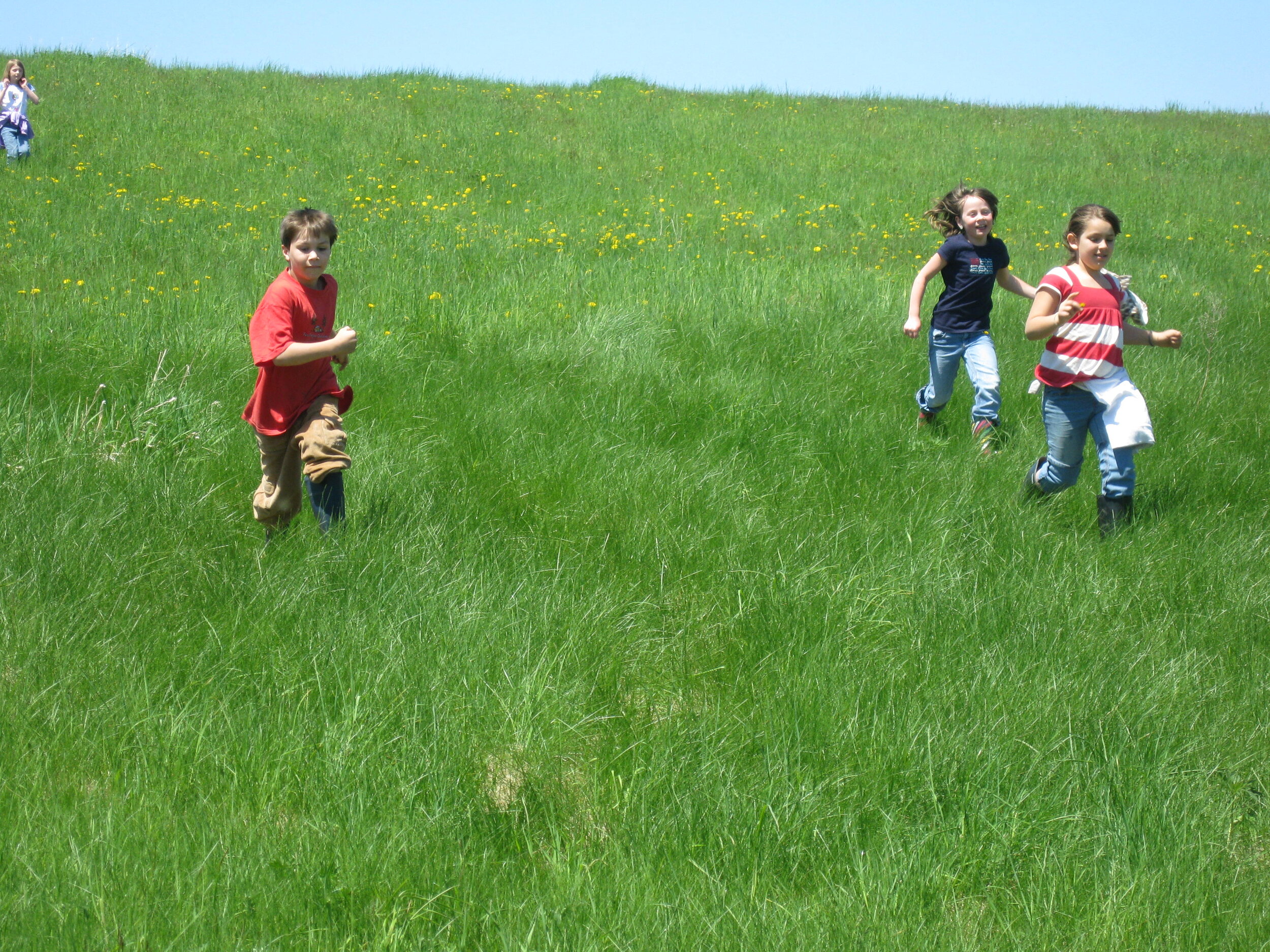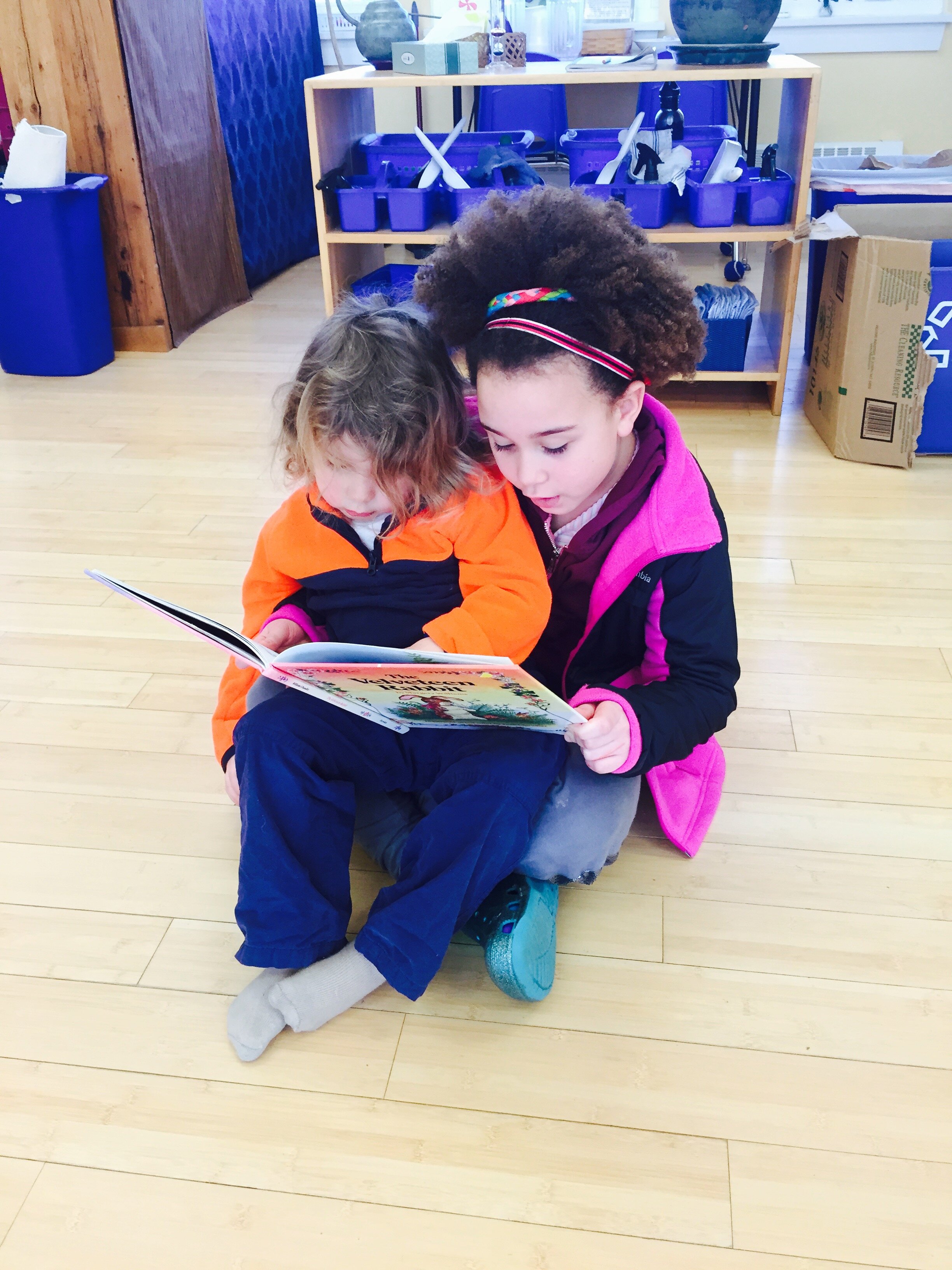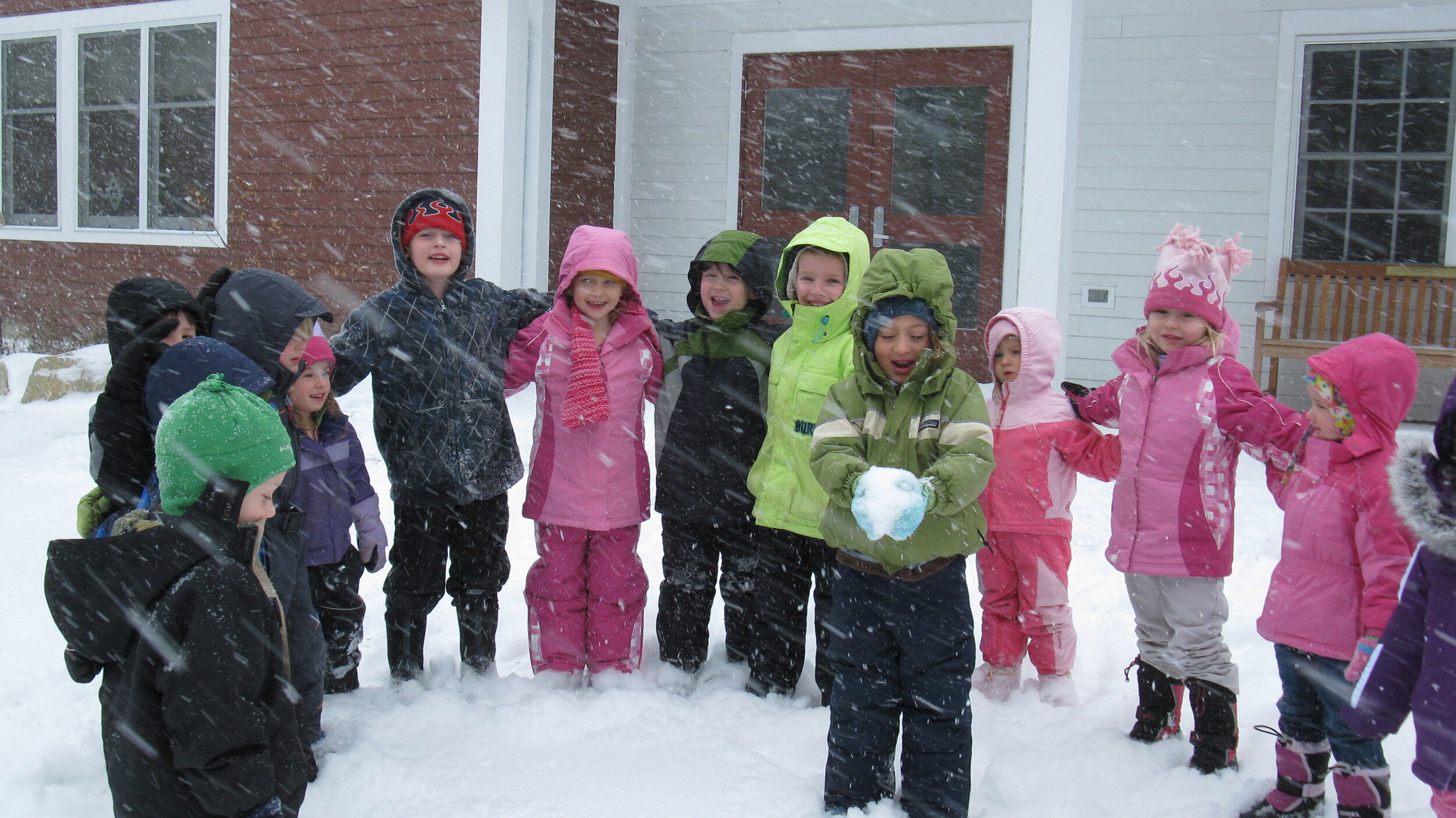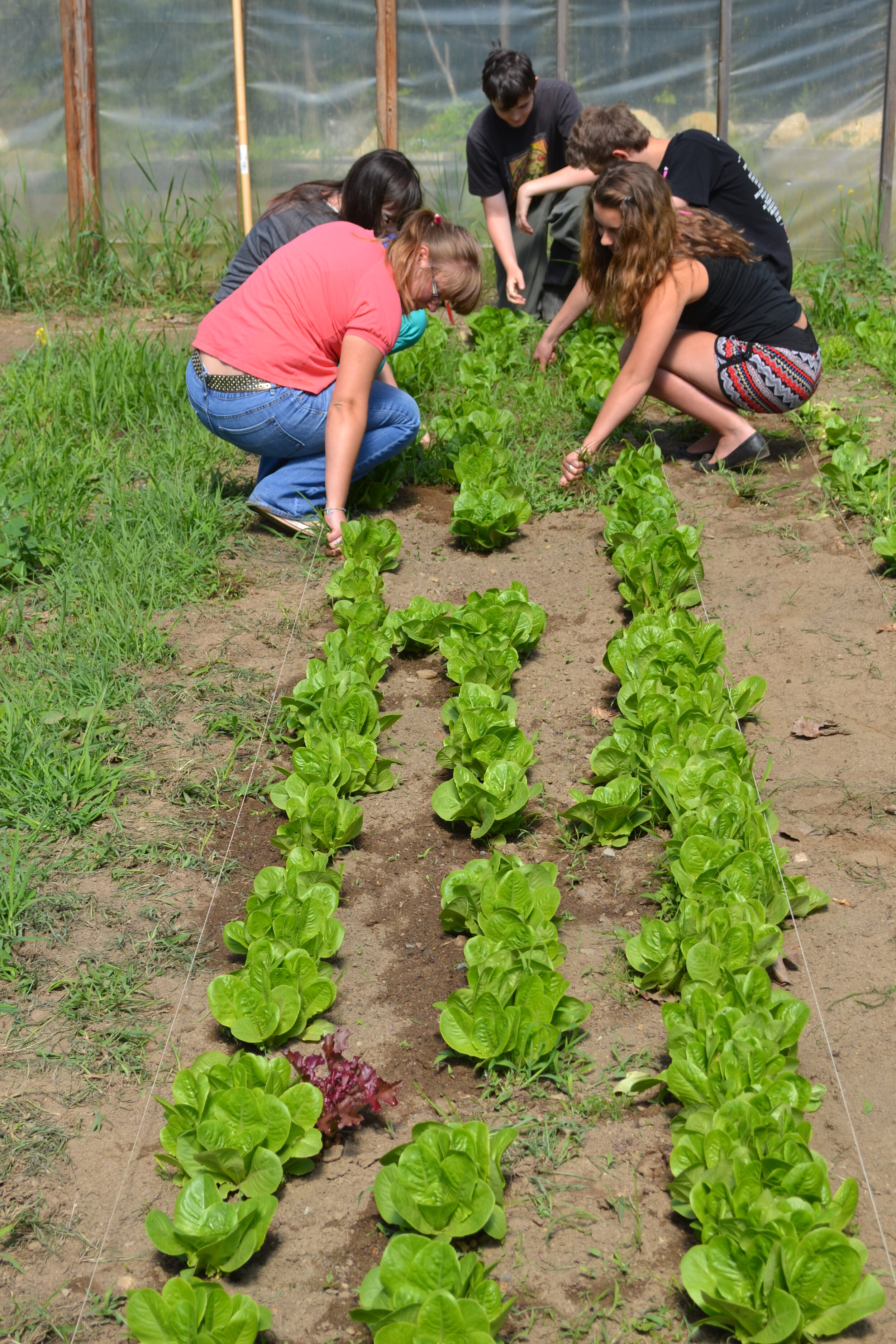Our Programs
PRIMARY
Our primary program serves children ages 3-6. Preschool and kindergarten children work alongside one another in a traditional Montessori multi-age environment. We offer both half and full day options, with the choice of 3 and 5 days per week.
Learning begins as soon as children arrive in the morning. We teach and encourage even our youngest students to hang their own coats and put away their things. Early in the year, we begin the day with a group circle; this time allows us to connect, build classroom community, and share fun lessons together.
The highlight of any Montessori day is the work cycle. For several hours, children are free to select work of their own choosing from shelves that have been carefully prepared by our teachers. Our educational methods rely on what is called choice within limits. Children choose what to work on, where in the classroom to focus on their work, and how long to sit with it, but the choices available to them lie within intentionally structured parameters.
During the work cycle, our teachers serve as guides. They give independent and small group lessons, they redirect children who need assistance, and they observe and record what they notice individual children are doing. This allows them to constantly assess children’s development and to plan for future lessons and alterations to the prepared environment.
The morning work cycle is followed by time spent outdoors around our beautiful campus. There is time to play on the playground with friends, participate in caring for our gardens, and enjoy the differences in our seasons. Upon returning indoors they eat lunch. The afternoon allows for rest time for those who need it, as well as an afternoon work period.
ELEMENTARY
Damariscotta Montessori continues to utilize the multi-age classroom approach during the elementary years. We offer two levels: lower elementary (grades 1-3) and upper elementary (grades 4-6). Grouping students with peers of different chronological ages has a myriad of benefits, including:
models for younger students
leadership opportunity for older students
flexibility and blending of academic skill levels
opportunity to build a relationship between a teacher and family
As within our primary program, fostering independence is a priority during the elementary years. As children master the ability to care for their own basic needs, there is a shift toward building emotional resilience and empathy, time management skills, and strengthening internal motivation.
The morning work cycle allows for choice within limits, within a structure that is developmentally appropriate for elementary-aged children. Students are given an individualized work plan with a list of tasks that must be completed. They are free to choose the order of their work as well as where and with whom they sit. Children’s desire to engage socially is woven into the learning structure; there is plenty of group seating as well as opportunities to work cooperatively. If a child has difficulty completing their work, it is seen as a learning opportunity. Teachers meet with children as a whole group and individually to brainstorm and suggest strategies for success.
The Montessori elementary curriculum focuses on core subjects such as mathematics and language skills, as well as what are referred to as the “cultural subjects”: history, science, and geography. The curriculum spirals, bringing skills back around again as children age. For example, first graders work with a hands-on material to learn the four operations in a concrete, including division. By the third grade, they have moved on to using a material that bridges the gap between large long division problems and completing said problems with pencil and paper. In upper elementary, this knowledge is applied to division of fractions, decimals, and more.
reading specialist
At Damariscotta Montessori School we honor the unique development of each child. If a child reaches a point at which they need extra support with reading skills, we have a specialist available to help.
MIDDLE
The Damariscotta Montessori Adolescent Program provides an innovative land-based educational program in which adolescents can excel academically, engage in meaningful work, acquire leadership skills, and learn to care for themselves, their peers, the environment, and their community.
Montessori philosophy views adolescence as a period of great transformation and extraordinary potential. The primary mission of the adolescent program is to serve the vital needs of adolescents through work that challenges both the mind and the body. This is carried out through a supportive teaching staff that creates a prepared learning environment that empowers adolescents to set and exceed their own goals, to engage in real community experience and meaningful, noble work; all of these contribute to their sense of purpose and worth.
The Damariscotta Montessori School Adolescent Program provides:
individualized instruction within small classes
logically integrated, challenging and rich curriculum
development of life and learning skills: self-direction, critical thinking, time-management, collaboration, and personal responsibility
development of community: respect, responsibility, democratic problem-solving and interdependence.
development of critical thinking and creativity
integration of technology
a learning environment that helps adolescents to discover their capabilities through meaningful work and real-life problem solving
Farm
Maria Montessori set forth plans for what she called the Erdkinder (children of the earth in German) as the approach for educating adolescents. Our middle school utilizes class meeting times to determine what they would like to plant and sell. They take on the responsibility for growing produce in hoop houses, harvesting, packaging, and distributing vegetables via a CSA program. This allows them to have hands-on experience in a natural setting, while gaining important business and financial skills. The money is used to fund an annual Odyssey trip to either Washington, D.C or Virginia.
Students from our lower level programs take advantage of our spacious grounds as well. Past projects have included planting vegetable and flower gardens, and raising chickens.
Co-curriculum
Damariscotta Montessori School prides itself on the strength of its academic curriculum, as well as its support of the social and emotional development of the child. We also recognize there are other areas of study that can serve to enrich the overall educational experience. These are a few of the experiences we weave into the learning at DMS:
lATIN
Beginning in lower elementary, classroom teachers begin giving students Latin lessons and weaving it into the weekly curriculum. There are formal lessons as well as moments in the traditional Montessori curriculum that integrate Latin as well. For example, a teacher may pause to point out that quadrilateral comes from the Latin words quadra (four) and latus/later (side).
Beginning in middle school, students participate in formal Latin lessons twice weekly with Ms. Mitchell.
mUSIC
In addition to music instruction in the classrooms, Ms. McCann is available to give optional lessons on string instruments, including violin, cello, guitar.
ART
Art is a part of the Montessori environment in every classroom, because art is one of the ways children express themselves, develop fine-motor skills, and explore their creativity. In elementary and Middle School, children receive art instruction from Ms. Wyman and Mrs. Tabor.
Physical Education
Movement, the development of gross motor skills, and teamwork are taught through the physical education program.
Extra-curriculars:
Offerings vary, but parent volunteers have led programs for children across many subject areas. Past offerings have included soccer, trail running, and Lego robotics. DMS also offers a downhill ski club that meets at Camden Snowbowl.
Outdoor Classroom/Nature Trail
At DMS we consider the outdoors to be an extension of the classroom environment. Beyond our gardens, we have outdoor space for lessons, as well as a nature trail that weaves through the woods and is available to children of all ages. Primary children can be seen taking walks with their teachers to find and identify leaf shapes, while older children use the natural surroundings as a means to find real-life examples of their work in botany, zoology, and biomes.
Summer program
We offer a summer program as well! Weekly themes change each year, so stay tuned to learn more.
Parent and Toddler Playgroup
Please join us each Friday from 9:00 to 10:30 for a free outdoor weekly parent/toddler playgroup. We meet at the outdoor stage on the DMS playground. Make sure you have weather-appropriate gear, as we spend our time exploring the nature trail, playing on our playground and stage, and even taking field trips together.
